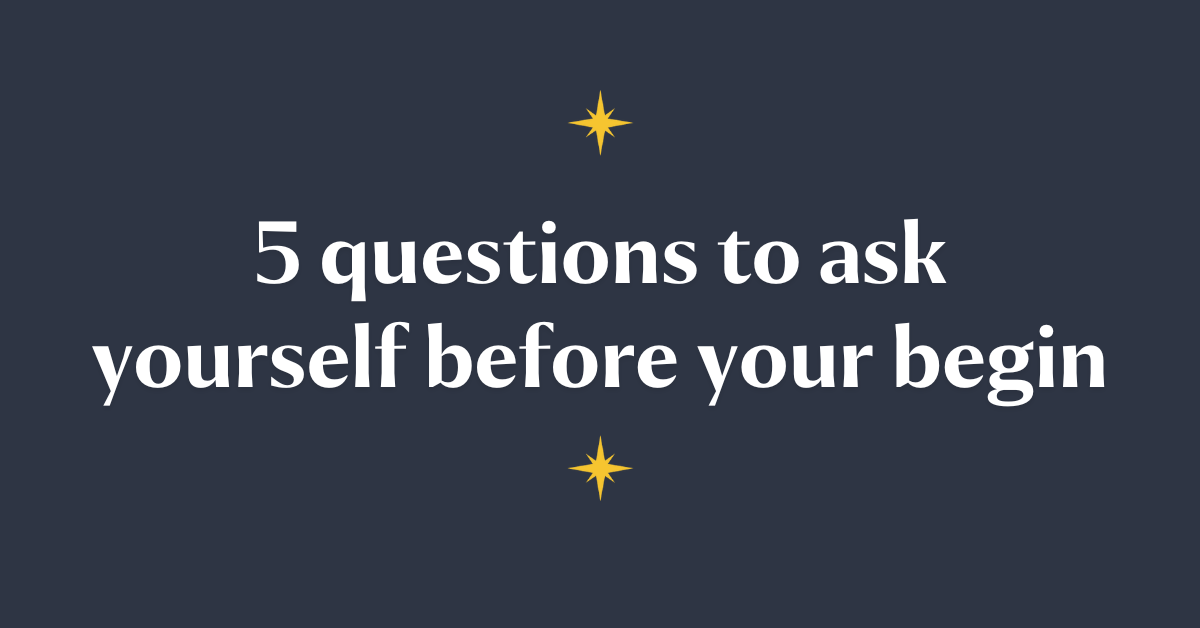A New Start in 2025
Five questions everyone should ask themselves before becoming a founder.
The New Year is the ideal time to start something new — and research agrees. We’re more likely to make big changes in our lives when those new behaviors or actions are attached to timing that feels like a clean slate.
This is called the “Fresh Start Effect”, a concept popularized by Wharton professors Katy Milkman alongside Jason Riis, Hengchen Dai.
This “fresh start” could be birthdays, the beginning of a school year, the first of the month, and of course, the New Year! It’s why New Years resolutions are so prominent. But this post isn’t about how to keep a New Year resolution.
Instead, I’m going to outline the questions or expectations you should think about when contemplating the creation of a new business, initiative, or project. Even if this idea aligns with your legacy magic — i.e. how you can uniquely leave your largest imprint on the world — you should still be thoughtful and clear-eyed before taking action.
These are 5 essential questions for all mission-driven founders
1) Are you willing to bet everything on this idea?
This is a question EVERY SINGLE FOUNDER should ask themselves before they go all-in on an idea. If the answer is no, then don’t do it. Solving a particular challenge or investing in a particular idea must feel like a calling.
This is the same advice that visiting seasoned and successful actors would tell my class during my NYU’s Tisch school (yes, I went to theater school) days. Why? Because the only 2% of actors can support themselves as actors, and to be wealthy from it…well, I don’t have the data, but I’m fairly certain it’s the lowest likelihood of success in all career paths. Entrepreneurship has a much better success rate (34.7% of businesses are still around in 10 years), but the path will still require real sacrifice and have large costs.
Even if this idea is totally aligned with your destiny, values, and personal mission, you can expect it to take a HUGE toll on at least one of the following areas:
Your Health —Mental and/or physical
Your Wealth — Betting the farm is usually a right of passage
Your Well-being — You will miss family and friends, and have to face lots of fears
2) Do you want to fundraise for the rest of your life?
This one’s for nonprofit founders only. There are innovative models where traditional nonprofits can create revenue generating segments (a couple of examples here — #HalfTheStory, Sanku and Playworks), but no matter what, if you’re a nonprofit founder, your main job will be fundraising. It will always be fundraising — even if you have a super talented development team, you will add the most value with fundraising.
If you’re driven solely by impact and not by dollars, please don’t start a nonprofit — join a board.
WxL Case Study: #HalfTheStory
Half the Story licenses their unique curriculum on digital wellness (how to stay mentally well and be on social media) to schools. This is a growing revenue stream, but the brilliant founder Larissa “Larz” May is still responsible for most of the fundraising.
How do I know this?
Because Larz is one of my best friends and the only nonprofit founder I advise. :)
3) Has this idea stuck with you over time?
If this particular idea has been on your mind for months, years, or even decades, chances are it’s something you have to do, because it’s true. I love my mom. The love for my mom hasn’t budged over 39 years — that’s because it’s true.
Anything that is true — sticks. Our dreams don’t die, but our courage to act upon them does. Trust that wisdom and take that first step.
4) How are you planning to support yourself and your relationships?
Emphasis on plan. Knowing how to build and cultivate a calm nervous system is essential for everything, especially when following your legacy magic as a founder. A calm nervous system equals a calm mind, which equals a healthier body. It’s also necessary for intimacy — because only when we’re calm can we choose connection over conflict (hence why, “the physical” is a core tenant of the EQ of Wealth). You can take up yoga, meditation, spend time in nature, but also make sure to prioritize meaningful relationships. It’s relationships that improve your life the most, according to the most famous study on life satisfaction and longevity.
5) How are you adding play and joy into your life?
Play and joy feel great, but they’re also necessary do hard things. Laughter is not only a chemical concoction of AWESOME for our bodies, but it can be medicine for low moments. This is why I suggest improv for any entrepreneur (fun article here) — it teaches you that “failure” can be quite silly… and even approachable.
To close out, I must share one of my favorite podcasts with Dan Pink on his research about regret: we tend to regret the things we DIDN’T do, not the things we did.
So, what are you waiting for?
Let’s get to doing.




